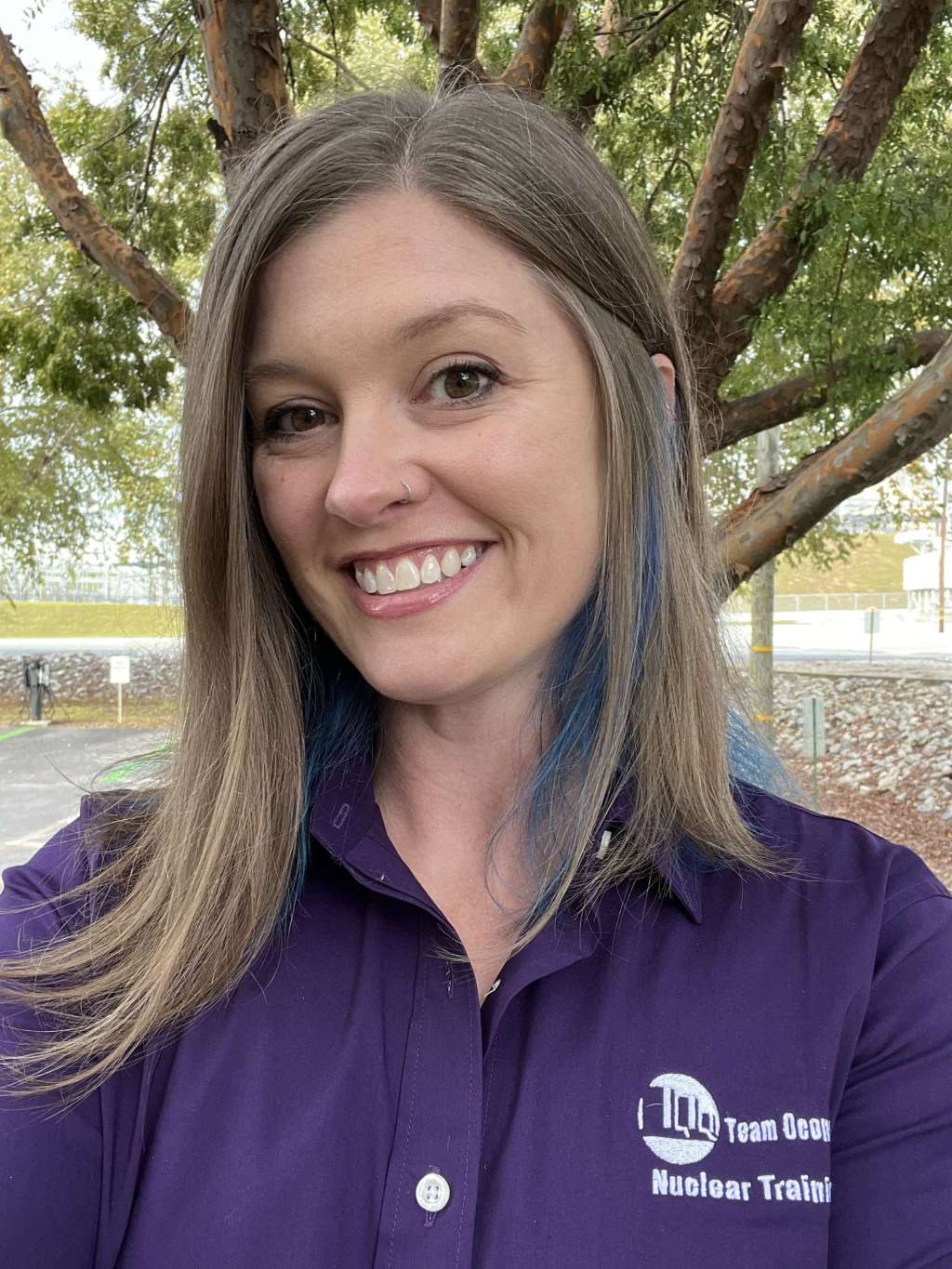Month: November 2021
Member Spotlight: Candice Jones-McCall
- Education/Certifications:
Bachelor of Science, Biology, University of Georgia; Master of Science, Biological Sciences (Microbiology/Immunology), Clemson University
- Employment:
Nuclear Chemistry Technician at Oconee Nuclear Station (Duke Energy) 2015 – 2021
Nuclear Station Instructor at Oconee Nuclear Station (Duke Energy) March 2021 to present
- Why did you choose the nuclear field or how did you end up in the nuclear field?
My first job out of college was working in the Biological Sciences Department at Clemson University. One of my co-workers got a job in the Environmental Chemistry Department at ONS and really enjoyed it, and she suggested I apply the next time an opening came up. I’ve always been interested in nuclear power, and found the idea intriguing enough to apply when jobs opened up a few years later. I started as a Primary Chemistry Technician in 2015, and in March of this year moved into the Nuclear Station Instructor position for the site’s Chemistry Training Program.
- What advice do you have for women in the nuclear field?
Don’t be intimidated by the gross imbalance between men and women in the field (nuclear being heavily male-dominated). Even though I am the only female instructor at my plant right now, I came from a department that is headed by women, and work for a company with a female CEO. Opportunity is there, and it’s yours for the taking.
- What do you think is the most important benefit of nuclear science, technology, or energy and why?
With the demand for energy ever increasing, and the environmental cost of carbon producing coal-fire plants something the world cannot afford to ignore, we need a supply of clean, reliable energy that can meet that high demand. Wind and solar are always a hot topic in the clean energy world, but they cannot produce power at high enough levels on their own. Nuclear power can. With research and development projects in micro-reactors, molten salt reactors, and more happening right now, nuclear is on it’s way to being a game changer in the power industry – becoming even more reliable and safe, on smaller scales, and with less consequential waste than ever before. The potential is simply amazing.
- Is there something about your job that most people are surprised to hear?
It’s incredibly SAFE!! Most people immediately recoil a little when you tell them you work directly with the water inside a nuclear reactor. They simply cannot fathom how you can take samples and analyze them safely, or not acquire huge doses of radiation in the process. I get asked a lot, “Isn’t that dangerous?” or, “Aren’t you worried something bad could happen?” and people are always surprised when I tell them no – the amount of rigor put in place for everything we do, especially concerning safety and risk, makes working at a nuclear plant one of the safest jobs I can think of!

